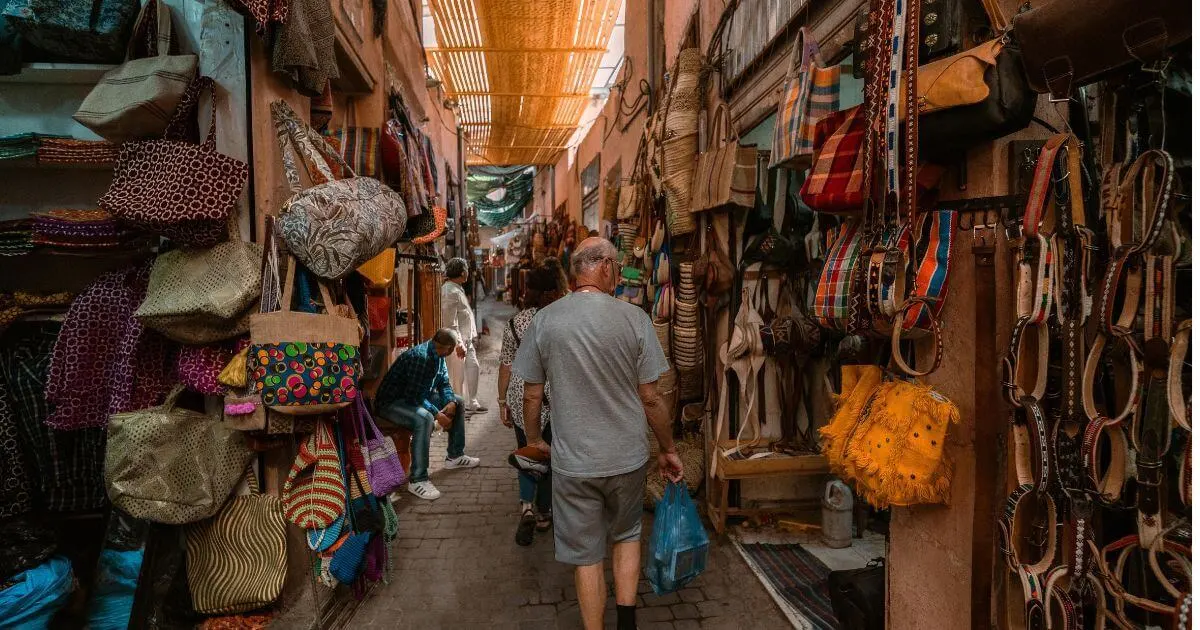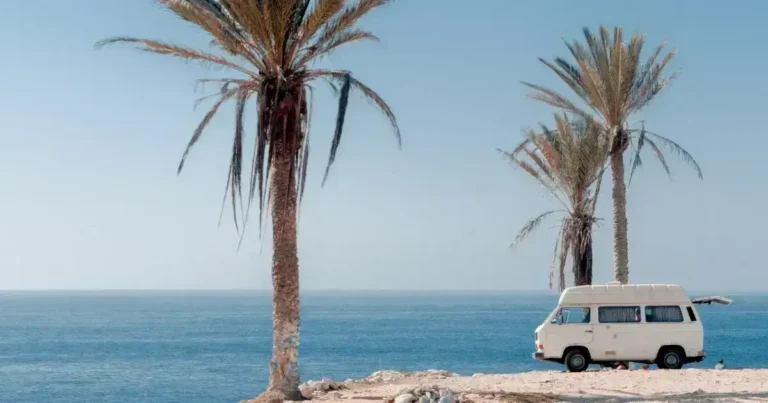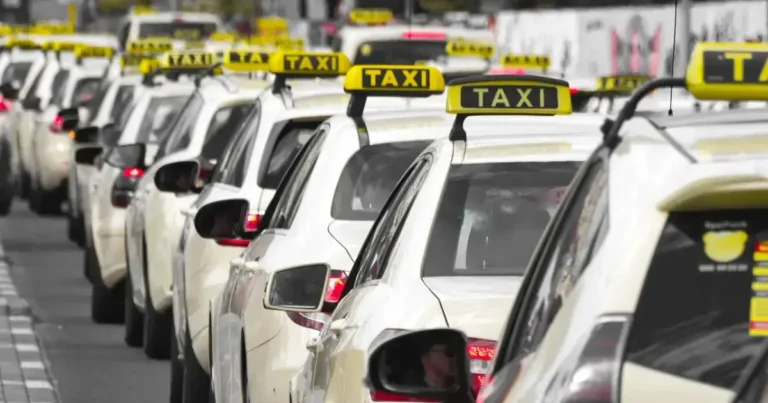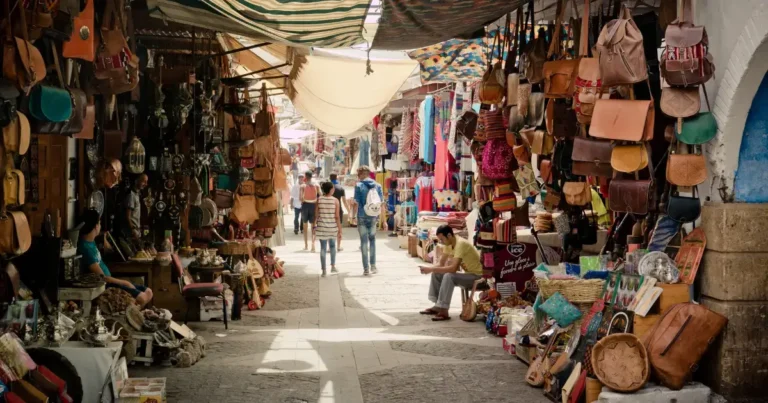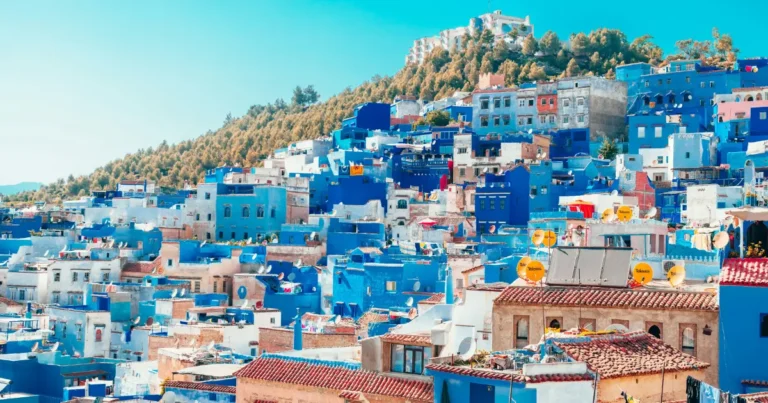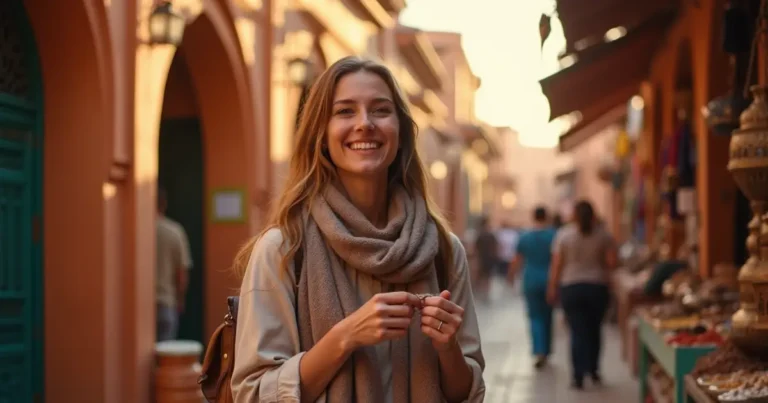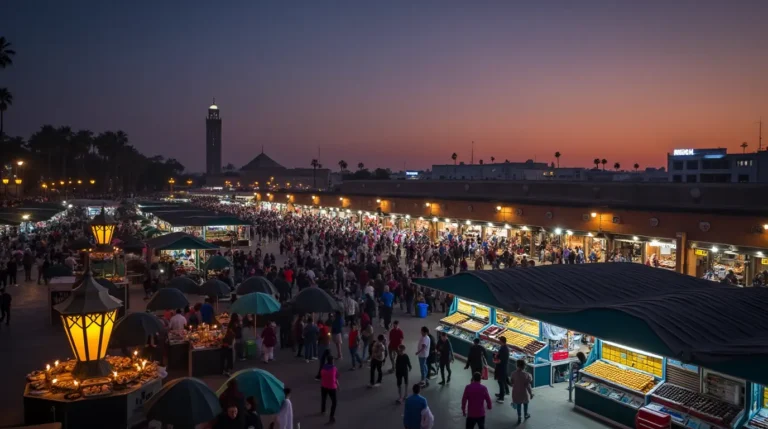What Americans Should Know Before Visiting Morocco
Table of Contents
What Americans Should Know Before Visiting Morocco
Planning a trip to Morocco requires careful consideration and an understanding of local customs. As an American, you’ll find a lively place full of cultural experiences. But, you must know how to navigate this North African country well. The U.S. State Department stresses the need for good travel safety tips in Morocco’s varied landscapes.
With the right knowledge and respect, your journey to Morocco can be truly incredible. Knowing local customs, safety rules, and possible issues helps you have great experiences. This guide offers key tips for U.S. travelers, based on Morocco’s travel advisory.
Key Takeaways
- Research current travel advisories before departure
- Familiarize yourself with local cultural norms
- Pack appropriate clothing respecting local traditions
- Learn basic Arabic or French phrases
- Register with U.S. State Department’s STEP program
- Carry copies of important travel documents
- Purchase comprehensive travel insurance
Current Morocco Travel Advisory and Safety Overview
Planning a trip to Morocco needs careful attention to travel advisories and safety info. Knowing the latest U.S. state department guidance helps prepare for a safe and fun trip.
U.S. State Department Travel Guidelines
The U.S. The State Department frequently updates its travel advisory for Morocco. It gives vital info for American travelers. Currently, travelers should take standard precautions in this lively North African spot.
- Review current travel levels and possible risk areas
- Check for any specific regional warnings
- Register with the Smart Traveler Enrollment Program (STEP)
Recent Safety Updates and Alerts
It’s key to stay updated on safety news for your Moroccan trip. Focus on:
- Political stability in cities and rural areas
- Potential security issues
- Health and medical concerns
Emergency Contact Information
Get ready for unexpected situations by saving important emergency contacts before you go:
- U.S. Embassy in Rabat: +212 537-637-200
- Local Police Emergency: 19
- Medical Emergency: 15
Always carry your passport, travel insurance, and emergency contact numbers when exploring Morocco.
By knowing the current Morocco travel advisory and U.S. state department guidance, you’ll be ready for your Moroccan adventure. You’ll begin your journey with assurance and a feeling of calm.
As American Should Know Before Visiting Morocco – Essential Documents and Entry Requirements
Getting ready for your Moroccan trip means focusing on safety and documents. Your passport is essential upon arrival in Morocco.
Before you leave, check if your passport is ready:
- It must remain valid for at least six months beyond your departure date.
- Has at least two blank pages for stamps
- Issued in the last 10 years
Americans usually don’t need a visa for stays under 90 days in Morocco. Knowing the culture helps a lot at the border. Keep digital and physical copies of your important papers for easy entry.
*Pro tip: Take clear, legible photos of your passport and save them online and in a safe place away from the original.*
Here’s what you need for entry:
- Valid U.S. passport
- Proof of return or onward travel
- Where you’ll stay confirmation
- Travel insurance (it’s a good idea)
Upon arrival at customs, you’ll be required to complete a form. Answer questions clearly and have a pen ready. Dress modestly and stay calm for a smooth entry.
Even though paperwork might seem boring, it shows you’re serious about traveling responsibly and respecting Moroccan laws.
Is Morocco a Safe Destination for American Travelers? And WhatAmericans Should Know Before Visiting Morocco
Traveling to Morocco can be thrilling, but knowing about safety is key for American tourists. Morocco welcomes visitors, but knowing some travel safety tips can make your trip safer.
Common Safety Concerns for Travelers
In Morocco, watch out for scams and petty crime that target tourists. You might face:
- Pickpocketing in crowded market areas
- Aggressive street vendors
- Potential tourist-targeted scams
- Occasional political demonstrations
Areas Requiring Extra Caution
Some places need more care. The political situation can affect safety, mainly near borders and in less-developed areas. Be cautious in:
- Remote desert regions
- Southern border zones
- Less-populated urban neighborhoods
Local Law Enforcement Support
Moroccan police are usually helpful to tourists. Always carry a copy of your passport and have emergency numbers ready. If problems arise, local authorities can help, but communication might take time.
“Being well-informed and prepared is essential for a secure trip in Morocco.” – Travel Safety Expert
By keeping yourself informed and taking necessary precautions, you can ensure a safe and unforgettable journey to Morocco.
Understanding Moroccan Culture and Customs As American Should Know Before Visiting Morocco
Traveling in Morocco is more than just following a map. It’s about being culturally aware. This awareness is key to a respectful and enriching trip. The Moroccan culture is a mix of Berber, Arab, and European, making it unique and fascinating.
Dress codes are important for safety and respect. Moroccan society values modesty, more so in rural and traditional places. Your clothes can greatly affect how locals interact with you:
- Choose loose-fitting attire that covers both your shoulders and knees.
- Avoid clothes that are too tight or revealing
- Women might want to carry a light scarf to cover shoulders in conservative areas
Social etiquette in Morocco is all about respect and hospitality. Greetings are an art form here. Knowing a few cultural tips can help you connect deeply:
“Respect is a universal language that goes beyond words.” – Moroccan Proverb
- Handshakes are common, but wait for a local to start
- Always use your right hand for eating or passing objects to others.
- Learning basic Arabic or French shows respect
Knowing local customs is more than being polite. It’s about making real connections. Your cultural awareness can turn a simple trip into a rich experience that connects different cultures.
Transportation and Getting Around Safely
Traveling in Morocco needs careful planning and knowing the local safety tips. This knowledge helps you stay safe from scams and petty crime. The mode of transportation you choose significantly influences your travel experience.
Public Transport Options
Morocco has many public transport options for travelers. Here are some key safety tips for buses and trains:
- Choose reputable bus companies with good safety records
- Keep your belongings close and secure
- Travel during daylight hours when possible
- Purchase tickets from official counters
Taxi Safety Tips
Taxis are common in Moroccan cities but can be risky. To stay safe, follow these tips:
- Use official, marked taxis with visible identification
- Agree on fare before starting your journey
- Avoid unmarked or informal taxi services
- Keep valuables out of sight
Car Rental Considerations
Renting a car offers flexibility but needs extra caution. Here are some tips:
- Choose a reputable international rental company
- Inspect the vehicle thoroughly before leaving
- Understand local traffic laws
- Purchase complete insurance coverage
*Always prioritize your personal safety over convenience when choosing transportation in Morocco.*
Health Precautions and Medical Considerations
Getting ready for your Moroccan trip means paying attention to health tips. Talk to your doctor about shots you might need for Morocco. You’ll likely need to get vaccinated for hepatitis A, typhoid, and other common diseases.
Travel insurance is key for your journey. Choose a plan that covers:
- Medical emergencies
- Potential medical evacuation
- Prescription medication replacement
- Emergency hospital treatments
Make sure to pack a medical kit with important items like:
- Prescription medications
- Anti-diarrheal medication
- Rehydration salts
- Basic first-aid supplies
“Prevention is always better than cure when traveling abroad” – CDC Travel Recommendations
Know the health risks in Morocco. Drink only bottled water and avoid street food that might not be clean. Also, protect yourself from the sun. Morocco’s heat can cause dehydration, so drink plenty of water and wear light, breathable clothes.
Look up local hospitals in your travel destinations. Keep the contact info for doctors who speak English and nearby hospitals handy. Your travel insurance can help find medical help in emergencies.
Money Matters and Common Scams
When you travel to Morocco, keeping your money safe is key. You need smart tips to handle money and avoid scams. This way, your trip won’t be ruined by financial issues.
Currency Exchange Tips
Here’s how to handle money in Morocco:
- Exchange currency only at official banks or licensed exchange offices
- Avoid street money changers who may offer seemingly attractive rates
- Count your dirhams carefully after each transaction
- Keep exchange receipts for possible future reconversion
Known Tourist Scams
Morocco has common scams targeting tourists. Watch out for:
- Fake guide syndrome: People who offer unsolicited tour services
- Inflated prices for souvenirs or services
- Overly friendly strangers trying to distract you
- Taxi drivers who refuse to use meters
Safe Payment Methods
Stay safe with these payment tips:
- Use credit cards with fraud protection
- Carry limited cash and split money between different places
- Notify your bank about travel plans before you leave
- Use ATMs inside banks during daylight hours
*Trust your instincts and walk away from any situation that feels uncomfortable or suspicious.*
Accommodation Safety and Best Practices
Choosing the right place to stay is key when traveling to Morocco. Your lodging can greatly affect your safety and overall experience. It’s important to know about cultural awareness and safety tips, no matter if you’re staying in a riad, hotel, or Airbnb.
When picking your accommodation, keep these points in mind:
- Location in safe, well-lit neighborhoods
- Verified reviews from previous travelers
- Properties with 24-hour security
- Secure room locks and safety deposit boxes
For cultural insight, think about staying in traditional riads in tourist areas. These historic homes offer a unique experience and are safer. Cities like Marrakech and Fez have many safe and authentic options.
“Your accommodation choice is your home base – choose wisely and prioritize your personal safety.” – Experienced Travel Expert
Digital safety is also important. Always check the Wi-Fi security at your place and avoid sharing personal info on public networks. Ask for rooms on higher floors for more security. Keep important documents and electronics in hotel safes when you can.
- Verify property legitimacy through official booking platforms
- Communicate with hosts about safety features
- Understand local emergency contact procedures
Most places in Morocco are welcoming and safe. By following these safety tips and staying aware of the culture, you’ll have a comfortable and safe trip in this amazing country.
Communication and Technology Tips
Staying connected in Morocco is key. Technology can be your travel buddy, helping you find your way and keep in touch. Knowing about mobile coverage and internet access keeps you informed and safe.
Mobile Phone Coverage
Before you go to Morocco, think about these mobile tips:
- Check with your carrier about international coverage
- Purchase a local SIM card for cheaper calls
- Make sure your phone is unlocked for use abroad
- Bring a portable charger for extra power
Internet Access Points
Wi-Fi is not the same everywhere in Morocco. Big hotels, cafes, and restaurants usually have free Wi-Fi. But, smaller towns might have less internet, so plan ahead.
- Cafes in cities like Marrakech and Casablanca have good Wi-Fi
- Think about getting a portable Wi-Fi device
- Find internet cafes as a backup
Important Apps to Download
Get these apps ready for easy travel:
- WhatsApp – the top app in Morocco for talking
- Google Translate for language help
- Google Maps for directions
- An app with local emergency numbers
- An app for currency conversions
“Technology bridges communication gaps and enhances travel safety when used wisely.”
Conclusion
Traveling to Morocco needs careful planning and knowing the latest travel advisories. By following important safety tips, you can have a memorable trip. Being prepared helps you face challenges and enjoy Morocco’s rich culture.
Safety starts with knowing the local customs and entry rules. Staying updated on risks is also key. The U.S. State Department offers detailed advice to help you stay safe.
Morocco is a great place for cultural exploration. Travel with respect, awareness, and an open mind. This guide will help you have a safe and enjoyable trip, making memories and expanding your world view.
Traveling well means being prepared, flexible, and positive. Understanding Morocco’s culture can turn challenges into growth opportunities. Your careful planning will make your trip exciting and rewarding.

